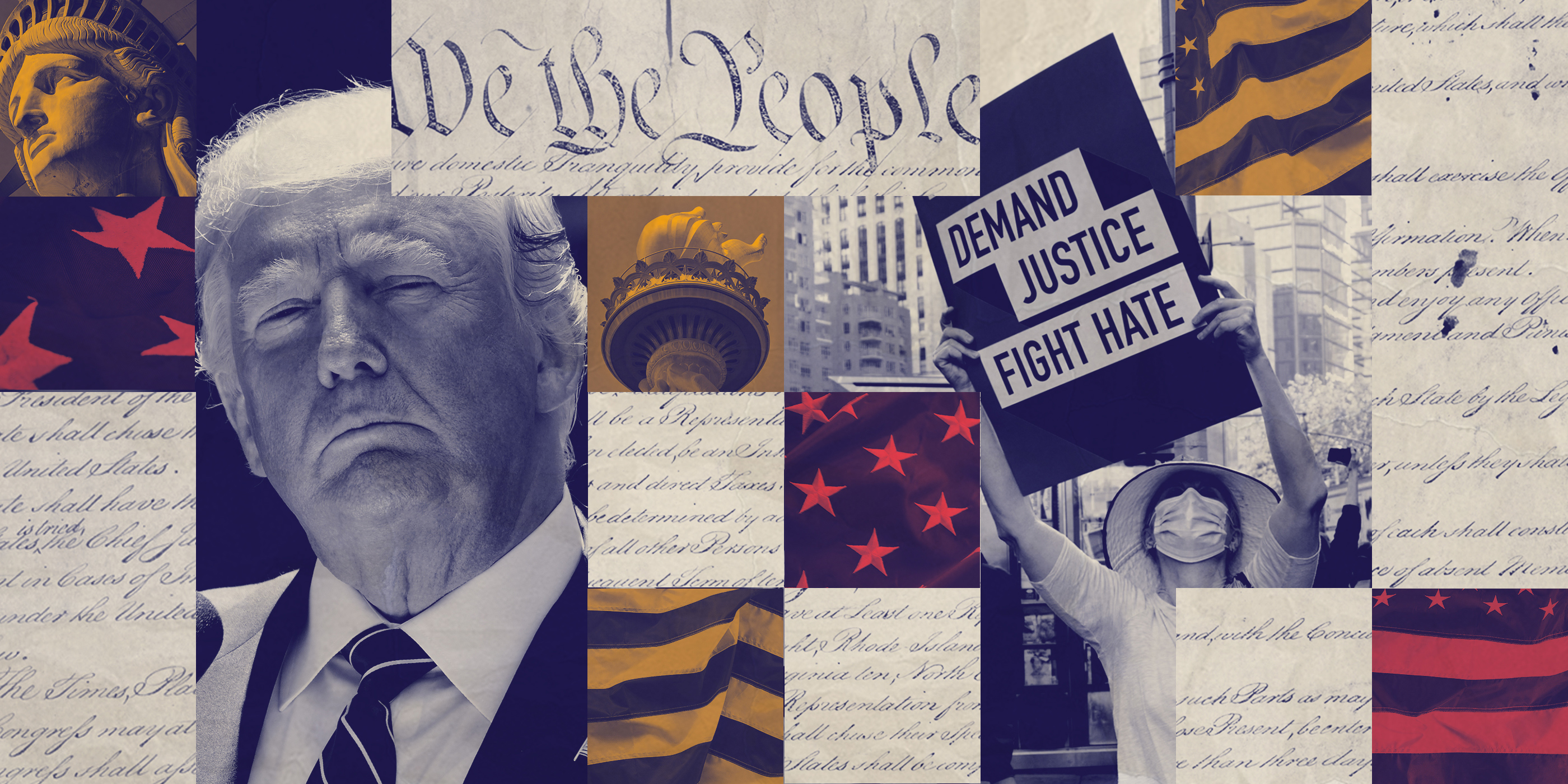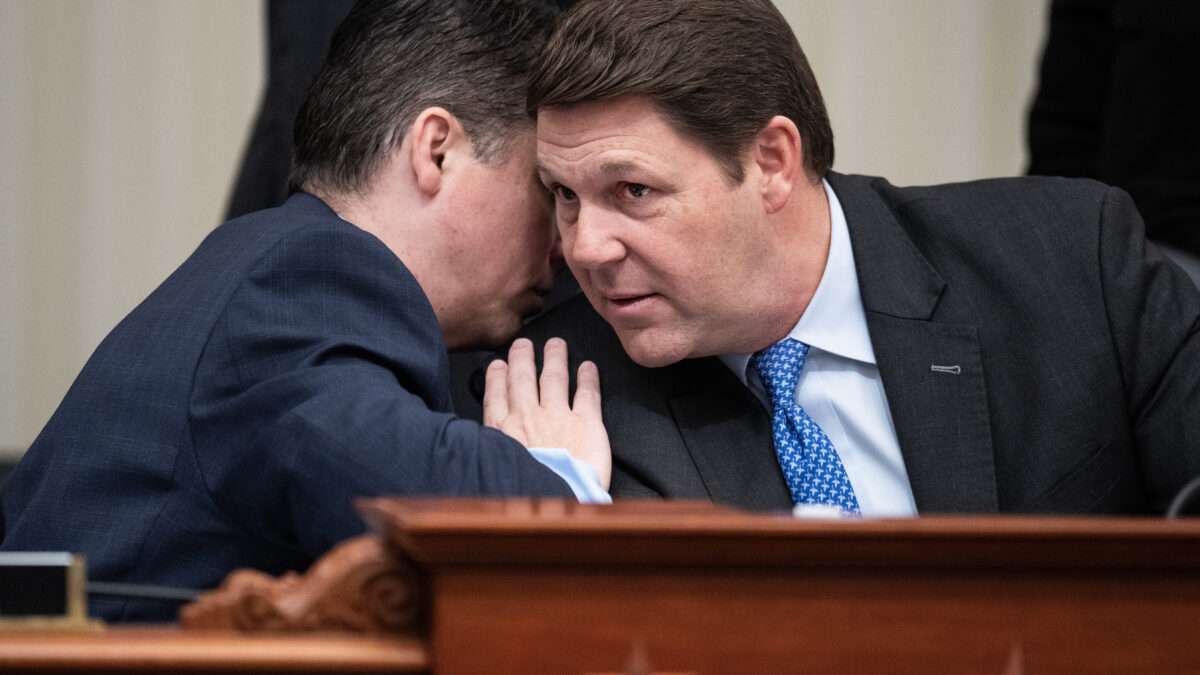Cities all across the United States have been increasingly passing laws that punish people who are forced to sleep outside each night due a lack of available shelter and extreme housing shortages. The Supreme Court will soon decide if doing so violates the Eighth Amendment’s prohibition on cruel and unusual punishment, in a case that arose out of southern Oregon and is arguably the most significant case on homelessness in decades. The ACLU’s Scout Katovich explains how the case made its way to the highest court in the U.S. and breaks down the stakes – both for the hundreds of thousands of people who are unhoused on any given night and for critical constitutional protections.
Katie Hoeppner: Can you tell us how this lawsuit came about and how it got to the Supreme Court?
Scout Katovich: Sure. The case comes out of Grants Pass, Oregon, which, like many cities in America, is facing a shortage of affordable housing that has led to increased homelessness. In 2019, there were at least 600 unhoused people in the city. The city’s response was to pass a set of laws making it illegal to sleep in public anywhere, at any time. The city called some of these laws “camping bans,” but they weren’t really about banning tents or what we usually think of as camping. Instead, they prohibited sleeping outside while using anything that could be considered “bedding,” even just a thin blanket to keep from freezing at night, or a rolled up t-shirt used as a pillow.
The punishment for this “crime” was hundreds of dollars in fines, which could quickly escalate to a sentence of 30-days in jail. Grants Pass started fining and arresting unhoused people under these laws, even though the city had zero accessible shelters for adults. So, every night, hundreds of people had no choice but to sleep outside and break these laws. In essence, they were being punished for the unavoidable human need to sleep.
A group of unhoused residents of Grants Pass challenged the enforcement of these laws and a federal court ruled in their favor, holding that the city’s enforcement of these “anti-sleeping” and “anti-camping” laws against unhoused residents with no access to shelter violated the U.S. Constitution’s prohibition on cruel and unusual punishments. On appeal, the Ninth Circuit agreed with the lower court. Now that decision is being reviewed by the Supreme Court, and the justices will hear oral arguments in the case on April 22.
KH: A lot of cities across the country have similar bans. Can you tell us how the Supreme Court’s ruling could affect the large number of people all over the country who don’t have any choice but to sleep outside at night?
SK: That’s exactly right – we’ve seen a troubling uptick in these kinds of unconstitutional sleeping and camping bans all across the U.S. One study found that over half of the 187 cities it surveyed have laws restricting sleeping in public and almost three-fourths have laws restricting camping. The Supreme Court decision in Grants Pass will determine whether cities can use laws like this to punish unhoused people with no access to shelter, just for sleeping outside with rudimentary protections from the elements. This ruling could affect a huge number of people. With over 600,000 unhoused people and a shortfall of at least 200,000 shelter beds nationwide, hundreds of thousands of people have no choice but to sleep in public every night.
“With over 600,000 unhoused people and a shortfall of at least 200,000 shelter beds nationwide, hundreds of thousands of people have no choice but to sleep in public every night.”
If the Supreme Court rules for Grants Pass, cities could be empowered to treat all of those people as “criminals.”
KH: The stakes are clearly enormous. What is the ACLU’s involvement in this case?
SK: Absolutely, this is a really important case, both for unhoused people and for the constitutional principles at issue. We felt strongly that the ACLU should weigh in at the Supreme Court, in part because it’s part of our mission to protect constitutional rights, including the Eighth Amendment right to be free from cruel and unusual punishments. But we’re also deeply invested in protecting the rights of unhoused people and, in fact, the ACLU and its affiliates have brought lawsuits similar to the one before the Supreme Court, challenging enforcement of sleeping and camping bans in cities across the country, including Albuquerque, Honolulu, Phoenix, San Francisco, and Boulder. In this Supreme Court case, the ACLU and 19 of its affiliates submitted a “friend of the court” brief urging the Supreme Court to uphold the Ninth Circuit’s ruling that punishing unhoused people without access to shelter for sleeping in public violates the Eighth Amendment’s prohibition on cruel and unusual punishments.
KH: Can you explain why the Eighth Amendment is such an important focus of the brief and lawsuit?
SK: Yes, our brief explains that the Eighth Amendment’s original meaning and more than a century of Supreme Court cases make clear that the Cruel and Unusual Punishments Clause bars governments from punishing people in ways that are disproportionate to the crime. It may sound a little wonky, but it boils down to the idea that the Constitution places some checks on how the government can punish crime. Punishment must be appropriate to the seriousness of the crime and should only be as severe as is necessary to promote legitimate goals of our criminal legal system, like rehabilitation and deterrence. Applying these well-established principles to the Grants Pass case, any punishment for the “crime” of sleeping in public when you have no other choice is unconstitutionally excessive.
KH: Can you say how the Grants Pass case fits within the ACLU’s other work, for those who may not immediately think of homelessness as an ACLU issue?
SK: Well, first and foremost, the ACLU is committed to protecting the civil rights and liberties of all, and especially the most marginalized members of our society, which certainly includes unhoused people. And our society’s approach to homelessness has made it a criminal justice issue and an equality issue. When cities like Grants Pass choose to respond to homelessness with police and jails, it fuels mass incarceration, keeping people in an endless cycle of poverty, incarceration, and institutionalization. Rather than confront the decades of policy failures that have led to a dearth of safe and affordable housing, and access to healthcare, and other services, politicians and government officials blame individuals for our society’s failings and use criminal punishment to try to push people out of sight.
“Rather than confront the decades of policy failures that have led to a dearth of safe and affordable housing, and access to healthcare, and other services, politicians and government officials blame individuals for our society’s failings and use criminal punishment to try to push people out of sight.”
And that’s where the ACLU comes in. We can’t stand by and let governments choose ineffective “solutions” that trample on the rights and dignity of our neighbors. This is also an ACLU issue because homelessness intersects with many marginalized identities, compounding discrimination and the disproportionate harms that our criminal legal system inflicts on marginalized communities.
KH: That’s a really important point about compounding discrimination…
SK: Yes, people with disabilities, LGBTQ people, and people of color, especially Black and indigenous people, are far more likely to experience homelessness because of systemic inequality and discrimination. Their overrepresentation in both the criminal legal system and among the unhoused creates a vicious feedback loop – unhoused people have an increased risk of arrest and incarceration and, in turn, a jail or prison stay often leaves people without housing and employment, keeping them in homelessness. The ACLU has long been invested in ending mass incarceration and addressing inequities in the criminal legal system, and it’s clear that our society’s approach to homelessness is exacerbating both.
KH: You mentioned that elected officials “choose” the punitive approach. And I think that’s important to underline, because they often act as though their hands are tied. Can you say more about what elected leaders could actually do to meaningfully address homelessness?
SK: There’s so much they could be doing. But first, I just want to emphasize that the punitive approaches they are taking only make the situation worse. Criminal legal system involvement and homelessness are part of a vicious cycle. Arrests, citations, and jail or prison time don’t solve homelessness, they exacerbate it. These carceral approaches also cost taxpayers a lot of money. In 2015, Los Angeles spent $50 million policing anti-homeless laws and, in Seattle, enforcing just one of its “quality of life” laws cost the city $2.3 million over just five years. So we really need to call on elected officials to stop passing these laws and adopting policies that take this misguided approach. Instead, cities and states need to focus on policies that actually address the root causes of homelessness.
KH: I wish more elected leaders would show this courage. What specifically would address those root causes?
SK: First and foremost, they need to focus on investing in safe, affordable housing. The link between homelessness and unaffordable housing could not be clearer: the areas with the most unsheltered homelessness are also the most expensive housing markets. Addressing this is a long-term commitment, but it will pay off. There’s a lot of research demonstrating that providing permanent, affordable housing, coupled with accessible services, successfully ends chronic homelessness and also reduces arrests and incarceration. We also need to increase access to wrap-around supportive services, and voluntary mental health and substance use treatment, and adopt non-law enforcement responses to situations stemming from mental health issues and poverty. There’s strong evidence that these non-carceral approaches are cost-effective, reduce contact with the criminal legal system, and increase chances of obtaining housing and employment.
KH: Is there anything else you think people should know?
SK: Yes, I think it’s really important to underscore that homelessness is not a nuisance, it’s a symptom of our collective failure to invest in our communities. It’s uncomfortable for sheltered people to have to confront this failure, but the answer to that discomfort is not to temporarily push people out of sight through criminal punishments. Addressing homelessness in humane and effective ways helps everyone. So many of us are just one bad circumstance away from losing our homes.
“Addressing homelessness in humane and effective ways helps everyone. So many of us are just one bad circumstance away from losing our homes.”
Housing costs have skyrocketed while wages have not kept pace. We are also facing extreme housing shortages. As a result, there’s nowhere in the country where a person working a full-time minimum-wage job can afford even a modest two-bedroom apartment. So protecting unhoused people’s rights and adopting effective approaches to reducing and preventing homelessness is something we should all be invested in.









